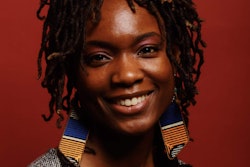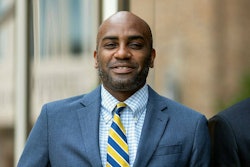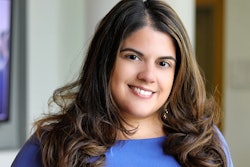Lincoln, a historically Black university in Pennsylvania, has been awarded a five-year grant from the National Science Foundation to design a mentorship program in scientific research as part of a national effort to expand research opportunities for minority students. Officials hope the program will encourage more undergraduate students to pursue graduate studies in biology, ecology and other science disciplines.
“This really is the age of biology and there are a lot of opportunities to do research and we need a lot of bright people to deal with environmental and health issues,” says Dr. David Royer, the grant’s principal investigator and chair of Lincoln’s biology department. “I don’t think students are aware of the opportunities that are available (and) the purpose of the undergraduate research and mentoring in biology program is to get more undergraduates, in particular minorities, involved in research.”
Royer adds that Lincoln faculty members will mentor students and develop one-on-one research projects over the course of the program. Lincoln officials will finalize their selection process by the end of this year and choose sophomore students from environmental science, biology and chemistry majors to participate in the mentorship experience, Royer says. The $209,000 grant will fund research opportunities for three students during the program’s first year and four students for each remaining year.
Govind C. Sharma, a program director in the division of biological infrastructure at the National Science Foundation, says Lincoln’s grant is part of a national push to expand research opportunities for minority students.
“This fund supports one year or longer research experiences while students are undergraduates in an effort to increase the number of underrepresented minorities going to graduate school in biological sciences,” says Sharma, adding that 10 other schools including the University of Wisconsin and the University of New Mexico have adopted similar mentorship programs that are NSF funded.
“Our program here is to see if we can increase the number of students who go to graduate school by working with the college … and to immerse them in good mentoring and participation in hands-on research and therefore increase the interest in graduate studies in biological sciences.”
Royer notes that selected students will conduct research at Lincoln and the University of Delaware’s College of Marine and Earth Studies, beginning next summer.
Students will return to Lincoln to continue their research under a mentor throughout the academic year before returning to Delaware for another summer, says Royer, adding that students will analyze various issues relating to pollution and various bay species. “The general theme will be the ecology of an urbanized estuary. We are really focusing on the Delaware Bay but the type of research will be quite varied.”
Dr. David Kirchman, a Harrington professor of marine studies at the University of Delaware, says Lincoln students will join a host of other students from across the country who engage in a list of research projects every summer at the diverse institution.
“I think it’s critical that students get involved in research at the undergraduate level. One of our goals is to expose these students to other types of sciences…including oceanography and marine biology,” says Kirchman, who adds that students will gain and refine hands-on research skills. “I think it really gets students excited about science because otherwise, science has the danger of being just a collection of facts (and) students don’t see that it’s a living process and that it’s a problem solving enterprise.”
Royer says that biology is one of the most popular majors at Lincoln. Many students, he adds, view the biology major as a pathway to medical school. But Lincoln officials hope the mentorship program will encourage more students to pursue research.
“We want those students to at least be aware of the possibility of doing research,” Royer says.
–Dana Forde
There are currently 0 comments on this story.
Click here to post a comment
© Copyright 2005 by DiverseEducation.com
















